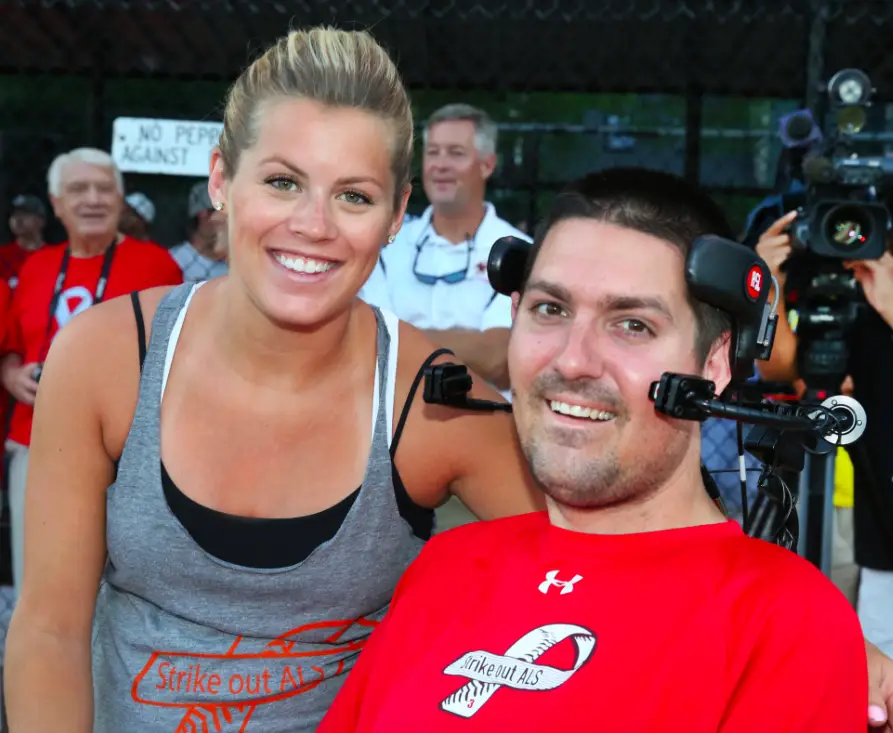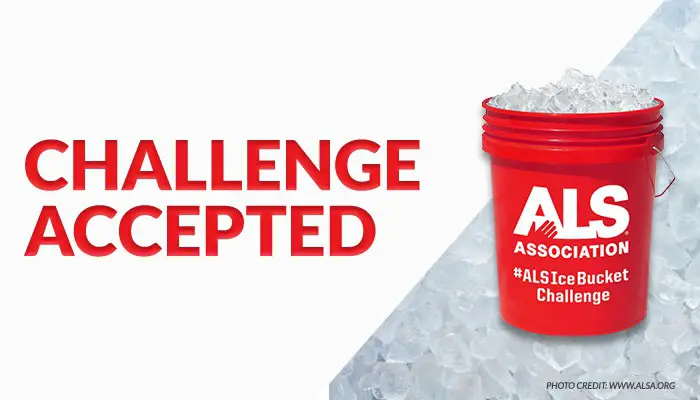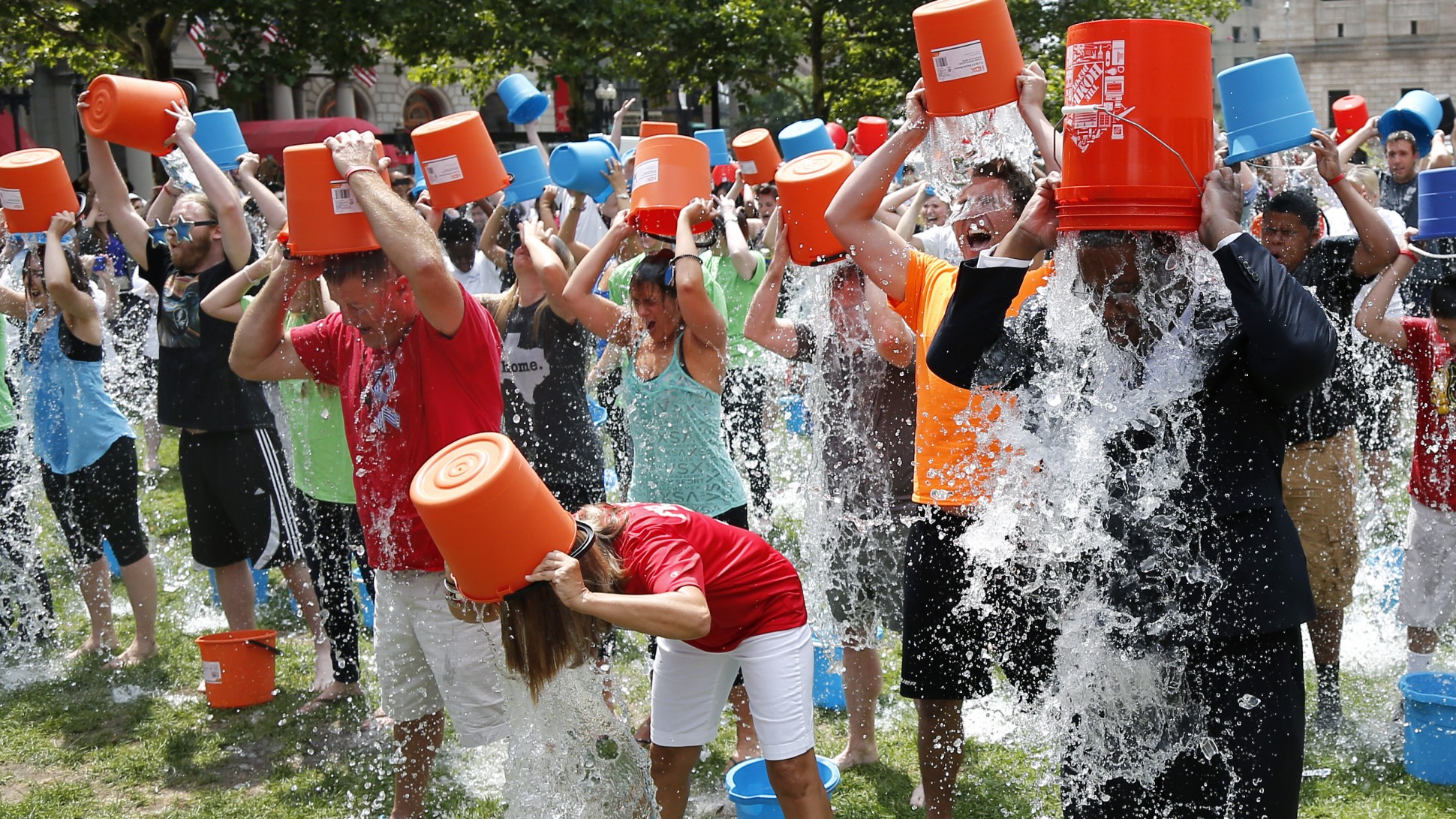Cosmologist and author Stephen Hawking, “Sesame Street” creator Jon Stone and former vice president Henry A. Wallace may have different passions, different political views and varying lifestyles, but they all suffer from the same deadly disease: ALS.
According to the ALS Association website, ALS, or amyotrophic lateral sclerosis, is a progressive neurodegenerative disease that affects nerve cells in the brain and the spinal cord that is typically detected in people between the ages of forty to seventy. With ALS, there is a progressive degeneration of the motor neurons, which eventually leads to their own death and the inability of the brain to control muscle movement in the body.
As the muscles get weaker, the ability to walk, talk, eat and even breathe gets more difficult as well. Unfortunately, there is no cure for the disease and only one current FDA-approved drug has been shown to slow the progression of the disease in some of those affected; however, one man decided to call attention to the disease that was going to claim his life.
Pete Frates, a former Boston College baseball player and professional baseball player in Europe, was diagnosed with ALS in 2012. In March 2013, Frates called upon the FDA and demanded for more attention and more action to fight against the disease. However, stopping at the nation’s capital did not seem to be enough. In August 2014, Frates picked up on the social movement that seemed to be breaking the internet.
Frates and his friends started a contest that challenged people to dump buckets of ice water on their heads in order to attempt to fight the vicious disease. The challenge took, and something as simple as picking up a bucket of ice water and pouring it on yourself became a phenomenon.

Athletes all over Boston, Frates’ hometown, were contributing. Members of the New England Patriots and the Boston Bruins suddenly influenced the rest of the country, and quickly buckets of ice water were dumped on the heads of people as famous as Justin Timberlake, Bill Gates, Oprah and even former president George W. Bush. While many people questioned the effectiveness of it, the Ice Bucket Challenge indefinitely changed the fight against ALS, allowing for Frates’ 2013 request of the FDA to come true, with more attention and more action happening.
In just eight weeks, $115 million was raised and the ALS Association found itself with a new outlook on the otherwise fatal disease. Because of the donations that were given by many of those who participated in the initial challenge, the Association’s research budget more than tripled, with an increase from $6 million to $19 million.
Since the start of the Ice Bucket Challenge, the ALS Association has devoted nearly $18 million to expand the global research program; in total, over $88.9 million has been invested in research. While the ALS Association is actively involved in the scientific research that is necessary to combat the disease, it also partners with a vast network of ALS Association Certified Treatment Centers of Excellence. These offer patients with ALS a better quality of life and greater access to therapies. Once again, because of the ALS Ice Bucket Challenge, donations have allowed the annual grants given to the centers to increase two-fold.
The greatest success of the Ice Bucket Challenge was the discovery of a new ALS gene known as NEK1 by researchers from Project MinE, an international initiative focused on genome sequencing. Project MinE was founded in 2011 by two entrepreneurs living with ALS, and because of the ALS Ice Bucket Challenge, $1 million was contributed to Project MinE by the ALS Association. The international task of sequencing the genomes of people diagnosed with ALS was conducted under researchers at the University of Massachusetts Medical School and Emory University.
In 2016, Project MinE discovered the NEK1 gene and started to figure out the gene’s mutations in relation to causes and possible cures for ALS. The NEK1 gene has multiple functions in relation to neurons and in regulating the membrane of the mitochondrion, which have both proven to contribute to ALS in some way. Now, because the NEK1 gene is regarded as one of the most common genetic factors associated with ALS, researchers from Project MinE have a new target for drug development.

This scientific discovery that may just be on the precipice of a medical breakthrough could be the answer Pete Frates was hoping for when he started one of the greatest social movements with a bucket of ice water and a video camera. Critics argued about the direction of donations, the research that was being done and whether people were simply caught up in the viral sensation. While it is easy to protest the purity of one’s actions in a movement like this one, it is hard to argue against the millions of dollars that were given to research and the overwhelming response and support Frates garnered in this wave on social media.
There will always be another disease, another fight against death, another tragedy to be dealt with. The researchers could run out of avenues to explore and the money from the ALS Association could very well run out. In fact, certain arguments have been made that attention that needed to be given to the disease itself instead went to marveling at the individuals voluntarily dousing themselves with buckets of ice water.
However, what has proven to be true through the ALS Ice Bucket Challenge is the dedication to raise more money and an even greater awareness to a fatal disease. Global collaboration among children and adults, businessmen and scientists alike, allowed for the discovery of a gene that could change the lives of millions to come.

















